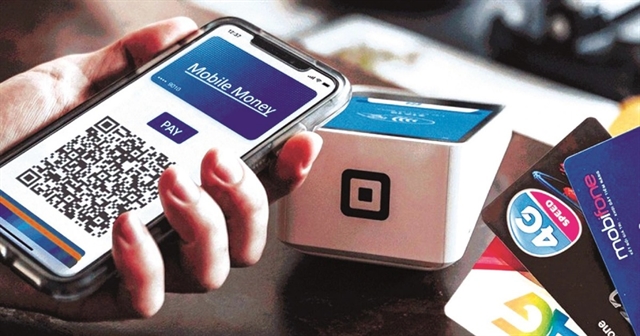 Economy
Economy


|
| By the end of 2024, the total number of customers registering and using Mobile-Money services was more than 10.2 million, of which 7.3 million were in rural and remote areas, accounting for 72 per cent. — Photo cafef.vn |
HÀ NỘI — After more than four years in pilot mode, Việt Nam’s Mobile Money service, which allows payments for small-value goods and services via telecommunications accounts, is set to gain an official legal framework.
The State Bank of Vietnam (SBV) has completed a draft decree regulating Mobile Money and sought feedback from service providers, banks and related businesses.
Under the new decree, the SBV proposes increasing the monthly limit for Mobile Money withdrawals, transfers and payments from VNĐ10 million during the pilot phase to VNĐ100 million per account. Specifically, payment limits for essential services such as electricity, water, tuition, hospital fees and social insurance would rise to VNĐ200 million.
This increase follows requests from pilot programme participants who argued the VNĐ10 million monthly cap was insufficient for practical needs and reduced the service’s appeal compared to other payment methods.
Mobile Money has been operating in pilot form since 2021 under Decision No. 316/QĐ-TTg, with the pilot phase ending at the close of this year.
After more than four years of the pilot Mobile Money services programme, implemented under Decision No 316/QĐ-TTg, enterprises have made efforts to develop the services and achieved positive results.
By the end of 2024, more than 10.2 million customers had registered for and used Mobile Money services, of whom 7.3 million were in rural and remote areas, accounting for 72 per cent.
Over 11,800 locations provided Mobile Money accounts for customers, and 275,960 business units accepted payments for essential services such as electricity, water, education, telecommunications and public administration.
The number of deposits, withdrawals, money transfers and payment transactions via Mobile Money reached nearly 193.9 million, with a total value exceeding VNĐ6.4 trillion.
However, the provision of Mobile Money services within the pilot framework has certain limitations. Enterprises have been cautious in their implementation and hesitant to invest boldly in long-term service development.
Therefore, the SBV has stated the necessity of developing a decree to regulate Mobile Money services in Việt Nam, creating an official legal corridor for service providers to operate.
The SBV believes the development of Mobile Money services will promote non-cash payments, reduce social costs, bring convenience to users and increase access to financial services, especially in rural, mountainous, remote, border and island areas of Việt Nam.
This is because the service allows customers to use their telecommunications accounts to perform various transactions such as payments for small-value goods and services, money transfers and direct deposits and withdrawals at stores and transaction points of telecom network operators nationwide without requiring a bank account or internet connection. — VNS